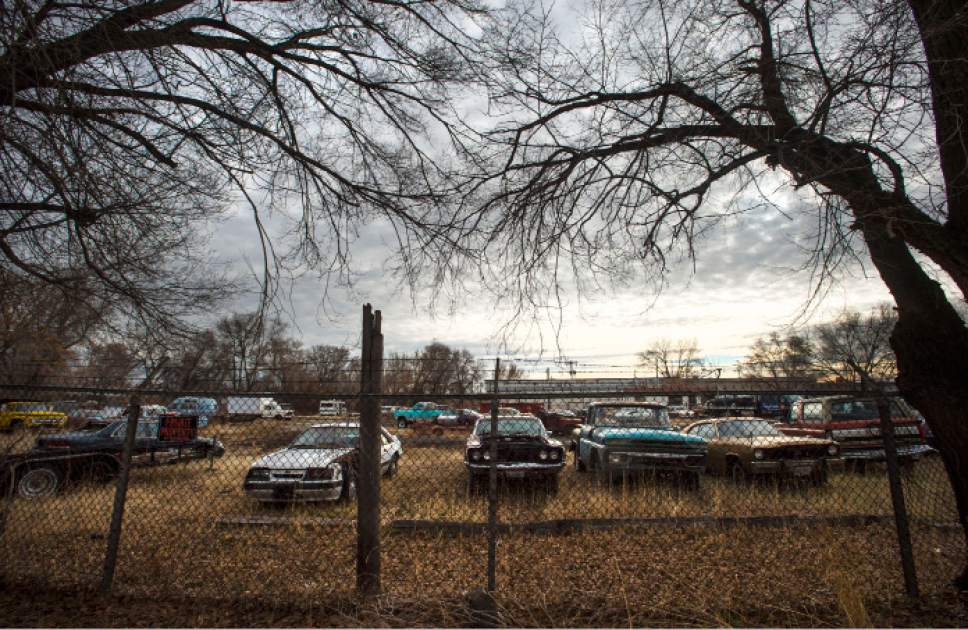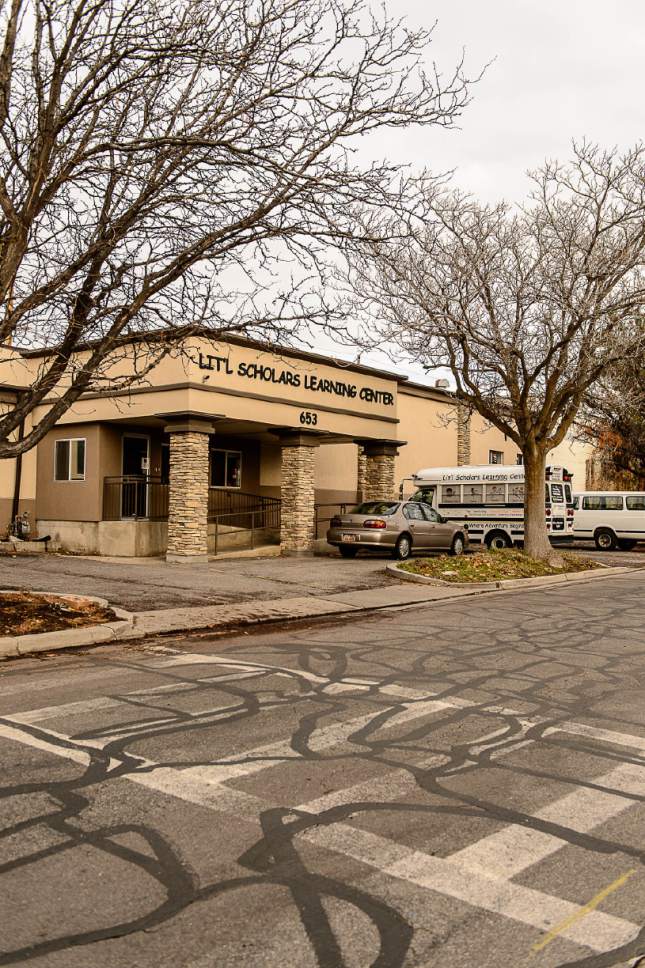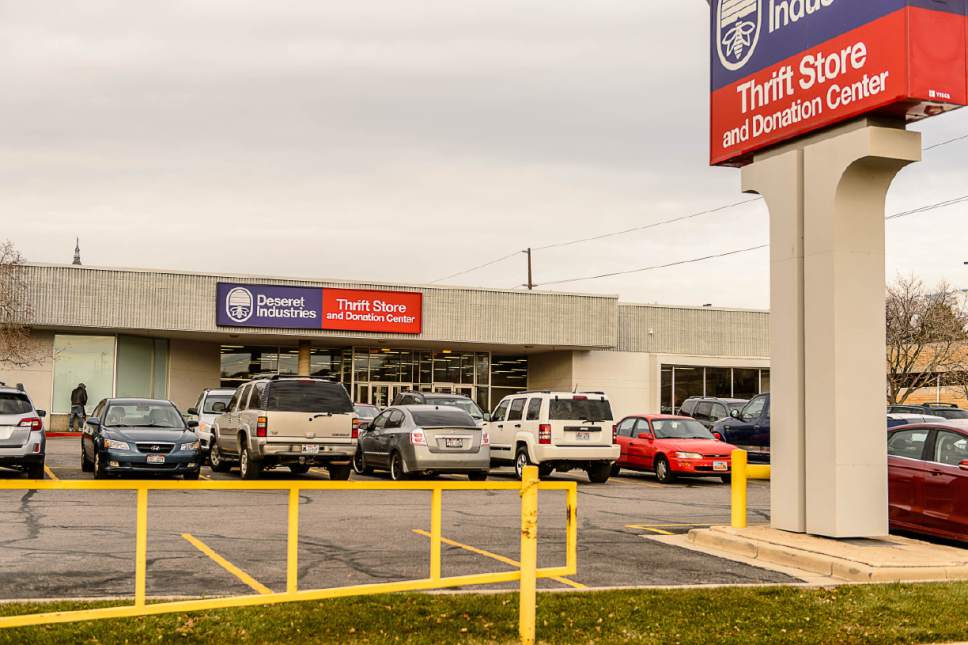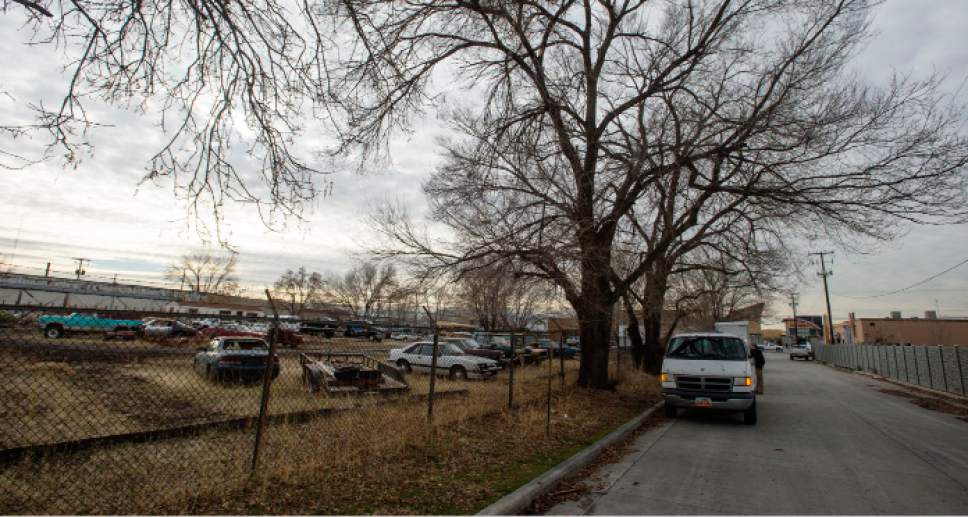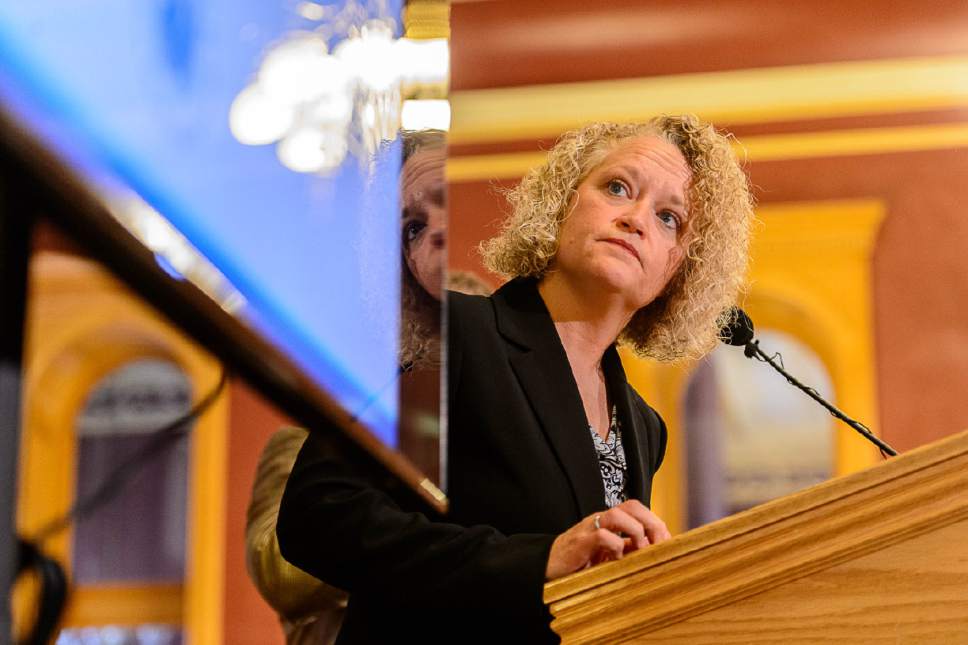This is an archived article that was published on sltrib.com in 2016, and information in the article may be outdated. It is provided only for personal research purposes and may not be reprinted.
Leaders of at least two Salt Lake City neighborhood councils are declaring their commitment to help make a success of newly announced homeless shelter/resource centers in their areas.
At the same time, one of those groups is demanding more openness from City Hall and a role in overseeing the planned facility in its community.
The executive board of the Central City Neighborhood Council "recognizes the moral imperative of Salt Lake City neighborhoods stepping up to help alleviate the human-rights crisis occurring in the Rio Grande neighborhood [site of The Road Home shelter] and throughout our city," said a statement on the group's website signed by Chairman Michael Iverson. "While our neighborhood greets this challenge with optimism, we expect a greater degree of transparency and cooperation from the city and county moving forward."
Mayor Jackie Biskupski and the City Council went behind closed doors to select the four sites for 150-bed homeless shelters, announcing those decisions Tuesday after deals were nailed down to acquire the property in question and sparking outrage from some surprised residents and business owners.
City leaders said the lack of transparency was necessary to avoid pitting neighborhoods against one another.
Iverson said that full engagement and a partnership among City Hall, homeless-service providers, residents and business owners are needed for the project to succeed.
"We urge the city and the county to consider the formation of community oversight boards for each new center," he said, "so that neighbors may have an active role in resource center programming and impact mitigation."
The mayor's office said in response that it would be "willing to examine all ideas rooted in the ideal of making this work," but made no commitment to the proposed formation of local oversight boards.
Iverson said in an interview that he didn't expect immediate buy-in from local elected leaders because he hasn't yet presented a fully developed plan. But his neighborhood council is working on it.
He would envision an oversight board that would include a community council member, a resident or two from the immediate neighborhood and representatives of a local business or two. It would function along the lines of advisory boards Salt Lake County uses for recreation centers, senior centers and libraries.
"Those are certainly much lower impact than homeless resource centers, so I think it only makes sense to bring that same model into these," he said.
"They should be involved in the design and the initial programming and some of the community outreach during the building phase, and then I think they should stick around indefinitely to provide an advisory role."
Having been involved in some nonprofits over the years, Iverson said one big advantage of such an organization is a volunteer base. "It provides an opportunity to have volunteers who are ready to go, not only the board members but the communities they represent can bring people to help."
The Central City Neighborhood Council represents the area from State Street to 700 East and from South Temple to 1300 South. It will become home to one proposed homeless shelter/resource center at 131 E. 700 South, the site of a current Deseret Industries thrift store owned by The Church of Jesus Christ of Latter-day Saints. Nearby are offices of the state's Workforce Services, a drug-treatment center, a convenience store and a park.
The Ballpark Community Council represents the area from Interstate 15 to State Street and from 700 South to 2100 South that contains the planned shelter/resource center at 275 W. High Ave. (1400 South). The Council sent Biskupski's office a statement assuring that it is "open and supportive to any well-thought-out and managed social-service proposal."
The statement points out that the neighborhood already contains the Volunteers of America Youth Resource Center and Palmer Court, a low-income supportive housing project of The Road Home.
"We consider it our responsibility to be open to new proposals," says the statement signed by community council Chairman Bill Davis and Vice Chairwoman Amy Hawkins.
"The homeless issue can never be totally solved — only better managed. Everyone can agree that the current situation desperately needed better management. The site selection process has been a long and very challenging process. We look forward to working with the mayor's office, City Council, the county and even the state on making this new approach a success for our neighborhood, the city and the state of Utah."
Biskupski spokesman Matthew Rojas applauded the two neighborhood councils and others "who have already indicated their willingness to be a partner in making the new resource centers work in Salt Lake City. We look forward to working with all stakeholders as we move forward."


